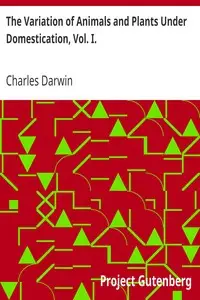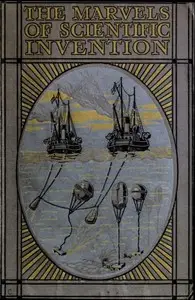"The Foundations of the Origin of Species" by Charles Darwin is an early scientific work setting the stage for evolutionary theory. Composed of essays from 1842 and 1844, the book looks at how different species change, focusing on the rules of what is called natural selection operating on both tame and wild creatures, and proving that species come from common ancestors. The narrative starts with Darwin's first ideas about evolution, formed by what he saw and the scientific discussions of the time, highlighting the importance of natural selection, diversity, and the slow changes in species over time, especially when compared to how humans breed animals selectively, creating a solid base for Darwin's argument for how evolution happens.

The Foundations of the Origin of Species Two Essays written in 1842 and 1844
By Charles Darwin
Explore the origins of evolutionary thought and discover how species adapt, change, and descend from common ancestors through the lens of natural selection.
Summary
About the AuthorCharles Robert Darwin was an English naturalist, geologist, and biologist, widely known for his contributions to evolutionary biology. His proposition that all species of life have descended from a common ancestor is now generally accepted and considered a fundamental scientific concept. In a joint publication with Alfred Russel Wallace, he introduced his scientific theory that this branching pattern of evolution resulted from a process he called natural selection, in which the struggle for existence has a similar effect to the artificial selection involved in selective breeding. Darwin has been described as one of the most influential figures in human history and was honoured by burial in Westminster Abbey.
Charles Robert Darwin was an English naturalist, geologist, and biologist, widely known for his contributions to evolutionary biology. His proposition that all species of life have descended from a common ancestor is now generally accepted and considered a fundamental scientific concept. In a joint publication with Alfred Russel Wallace, he introduced his scientific theory that this branching pattern of evolution resulted from a process he called natural selection, in which the struggle for existence has a similar effect to the artificial selection involved in selective breeding. Darwin has been described as one of the most influential figures in human history and was honoured by burial in Westminster Abbey.



















